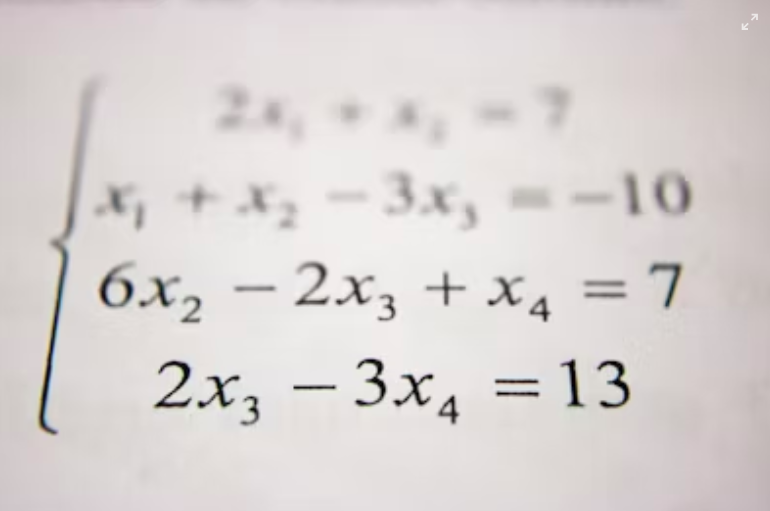In a world increasingly driven by data, algorithms, and sustainable development goals, the significance of strong foundations in Linear Algebra and Calculus cannot be overstated. From Quantum Computing to Private Lending, and from Bio-electrical Engineering to Mining and Nuclear Sciences, linear algebra sits at the core of modeling, optimizing, and predicting complex systems. Yet, while the demand for high-caliber STEM talent grows globally, an untapped resource lies in the underrecognized but deeply mathematically proficient student populations of Francophone West African nations like Mali.
Mali: A Land of Mathematical Legacy and Strategic Relevance
Mali is not merely the home of vibrant culture and resilient people. It is a land whose intellectual roots can be traced back to the legendary city of Timbuktu, founded by the ancestral figure Buktu. Timbuktu was once the intellectual epicenter of Africa, renowned for its scholars, libraries, and mathematical manuscripts. Today, that legacy continues through a new generation of Malian youth—especially high school students who, thanks to rigorous French-modeled education systems, are often well-versed in Calculus, Linear Algebra, and Scientific Reasoning by the time they graduate.
A New Mission: Empowering the Future through 4PECC
4 Pillars Emergency Contracting Consortium, LLC (4PECC), founded in part by members of the Malian diaspora, recognizes the immense value of this talent pool. The organization envisions a future where mathematically gifted students from Mali and similar nations serve as global catalysts in tutoring, research, and innovation. In particular, 4PECC promotes cross-cultural STEM partnerships between African and American students in order to develop faster and more efficient AI algorithms, economic models, and engineering solutions.
Why Linear Algebra is Central to This Vision
Linear algebra is not merely a math class—it is the language of modern technology and science. Here’s how it intersects with core industries and why Mali's youth can make a transformative impact:
- Quantitative Finance & Private Lending: Portfolio optimization, risk modeling, and algorithmic trading rely heavily on vector spaces, matrices, and eigenvalue decomposition. Malian students' mathematical fluency positions them well to tutor American students and assist in building next-generation Fintech platforms that are both inclusive and globally aware.
- Quantum Computing & High-Performance AI: Quantum algorithms and quantum machine learning depend on linear transformations in Hilbert spaces. As the global tech race intensifies, Mali’s human capital can contribute to designing supercomputing systems for trend analysis in agronomy, economics, and urban development.
- Bio-electrical Engineering & Electronics Repair: Modeling biological signals (like ECG or neural spikes) requires linear system analysis. Equipping youth from Mali with hands-on applications in bio-signal processing and repair not only builds industry resilience but also accelerates biomedical innovation in underserved regions.
- Mining Engineering & Battery Systems: Geospatial modeling, ore density analysis, and electrical storage optimization all depend on multi-variable matrix computations. These applications are vital to energy independence and sustainable mining practices, where both West African natural resources and technical expertise can merge.
- Nuclear Science for Energy Sovereignty: Reactor physics and neutron transport simulations are modeled using linear operators. By pairing American infrastructure with Malian math minds, nations can collaborate on clean energy solutions that reduce global dependence on fossil fuels.
The 4PECC Strategy: Tutoring, Training, and Technology Transfer
Through 4PECC’s initiative, mathematically advanced students from Mali are positioned to:
- Tutor underserved American students, improving STEM equity and fostering academic excellence in disadvantaged communities.
- Contribute to open-source scientific software development, particularly in fields like Economic Geophysics, AI modeling, and environmental simulations.
- Collaborate with U.S.-based institutions on prototyping modular hardware systems, such as energy storage devices, AI sensors, and geophysical testing equipment.
This isn't just a tutoring program—it’s a new development model that sees young people from historically underutilized regions as full contributors to global innovation.
A Brighter Future Through Ancestral Vision
The legacy of Buktu and Timbuktu is not just one of the past. It is a vision of global academic leadership that finds new life in today’s interconnected world. By embracing Mali's mathematically gifted students and integrating them into advanced STEM pathways, 4PECC is working to build supercomputers, predict economic trends, and develop the technologies that will define the next century.
In an era of climate urgency, digital transformation, and socioeconomic divides, Linear Algebra is a bridge, and Mali may just be the fulcrum. The future of AI, energy, and human progress is not just being coded in Silicon Valley or Shanghai—it’s being calculated in classrooms in Bamako.
